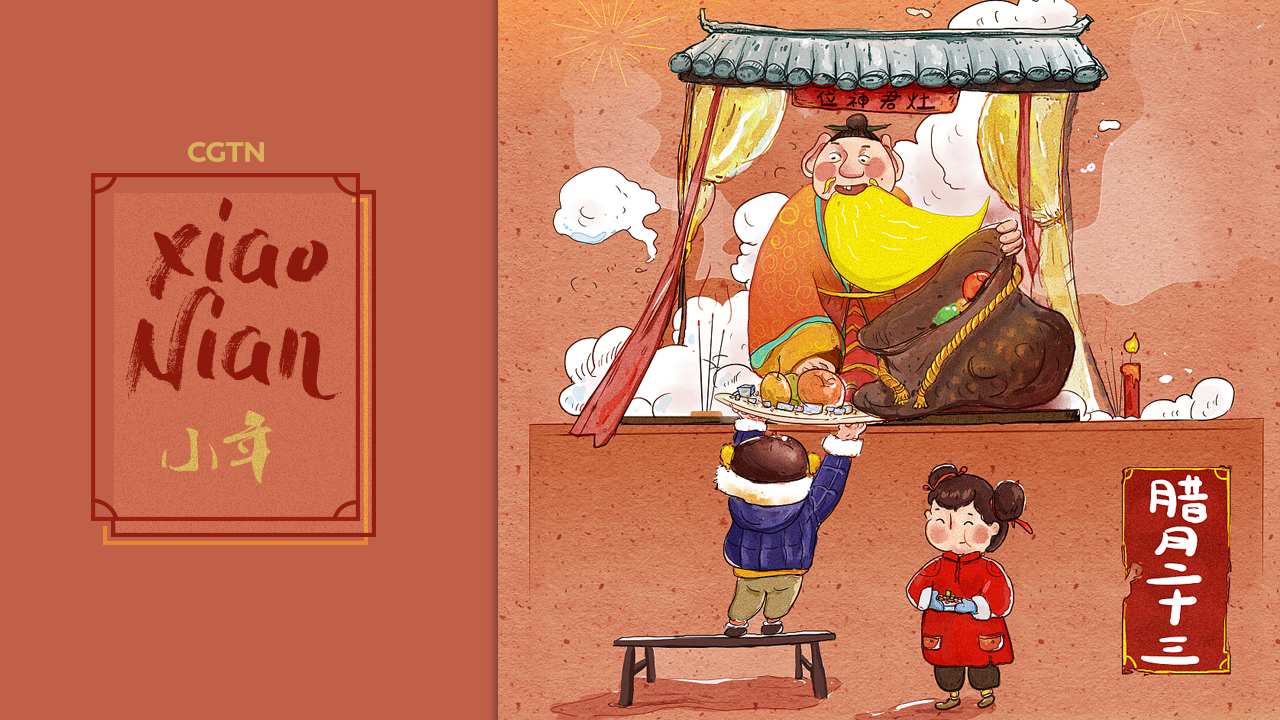Xiao Nian, or the lesser Chinese New Year, is on the 23rd or 24th day of the La Yue (twelfth month on Chinese lunar calendar). It marks the start of the Spring Festival season, the grandest feast throughout the year in China. This year's Xiao Nian falls on January 28 and 29.
The Kitchen God
In the Chinese legends, Xiao Nian is a day when the Kitchen God goes back to heaven to report his work. Most of the time, the Kitchen God lives in the mortal world to inspect and record the good and evil deeds of each household. On Xiao Nian, he reports to the Jade Emperor, the ruler of heaven, who will decide whether to punish or reward a family according to the Kitchen God's words.
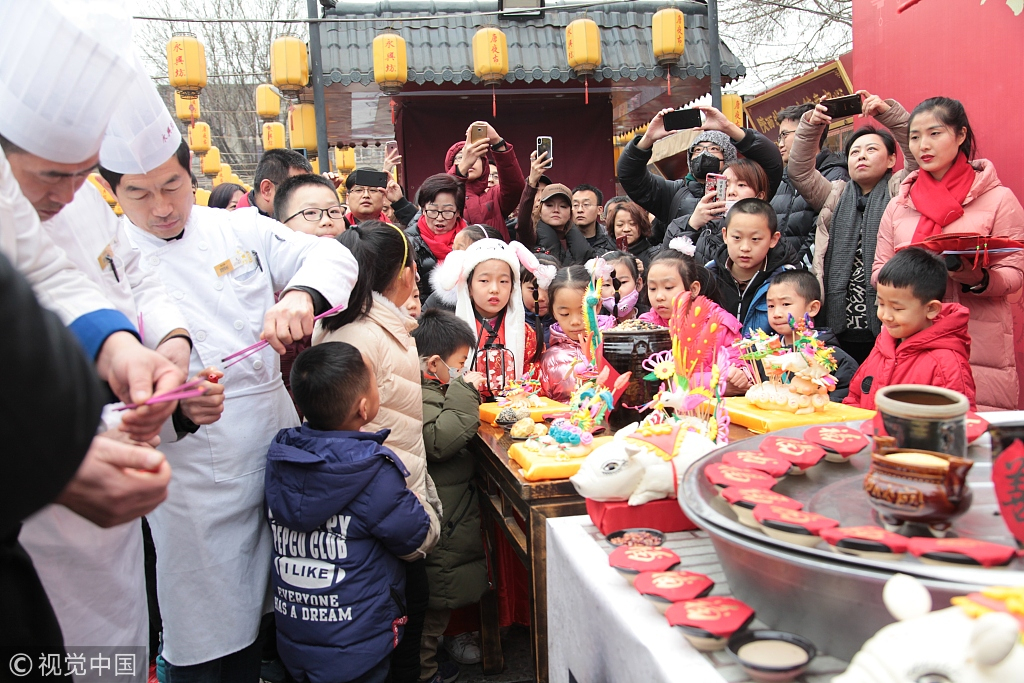
A cultural event showing the customs and snacks for Xiao Nian is held in Xi'an, Shaanxi Province, January 28, 2019. /VCG Photo
A cultural event showing the customs and snacks for Xiao Nian is held in Xi'an, Shaanxi Province, January 28, 2019. /VCG Photo
People usually offer sacrifices and liquor and burn incense in front of his portrait to "bribe" the Kitchen God and beg him to speak in favor of the family. Among all the offers, a necessary one is Zaotang.
Zaotang, or "hearth candy," is made of barley sugar, often takes the shape of a stick or a ball. The ball-like ones are also called Tanggua (candy melon) in Chinese.
Zaotang is exceptionally sticky and sweet. People hope by having that, the bad words could be locked in, and only sweet words could be spoken out by the Kitchen God.
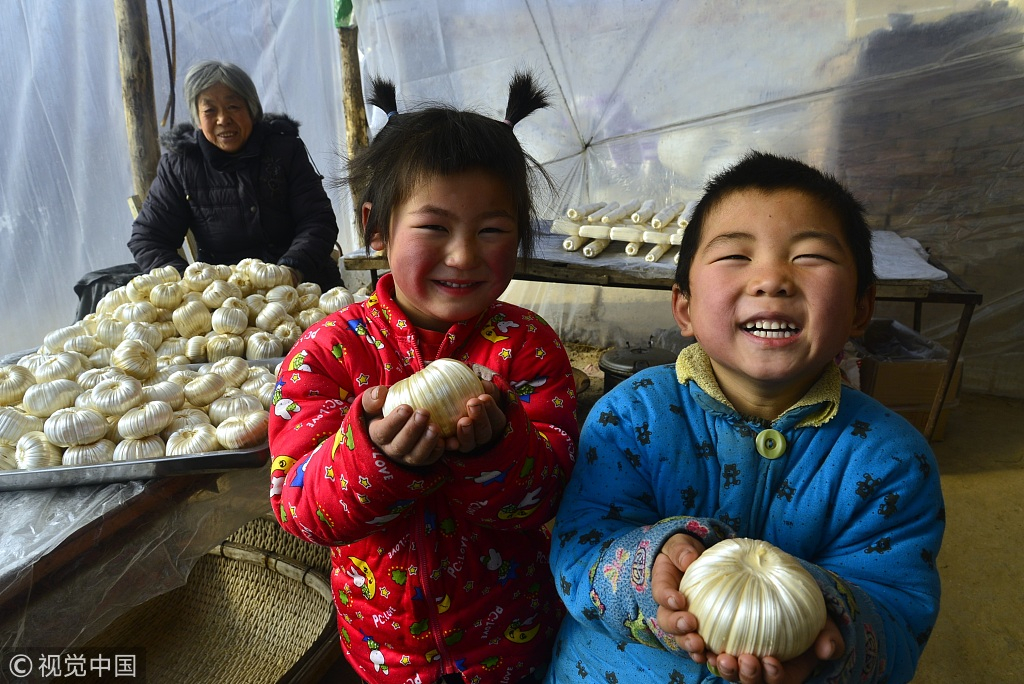
Two kids hold ball-shaped Zaotang in their hands in Shandong Province. /VCG Photo
Two kids hold ball-shaped Zaotang in their hands in Shandong Province. /VCG Photo
The figure of Kitchen God originates from people's natural worship for the fire in ancient times. As the old saying goes, "food is the god for the people," plenty of food, bright fire and smoke produced in a kitchen often represent prosperity for a family.
The Kitchen God is thus a deity with the highest status in the folk world.
23rd or 24th?
Residents in north China celebrate Xiao Nian on the 23rd day of La Yue, while southerners on the 24th.
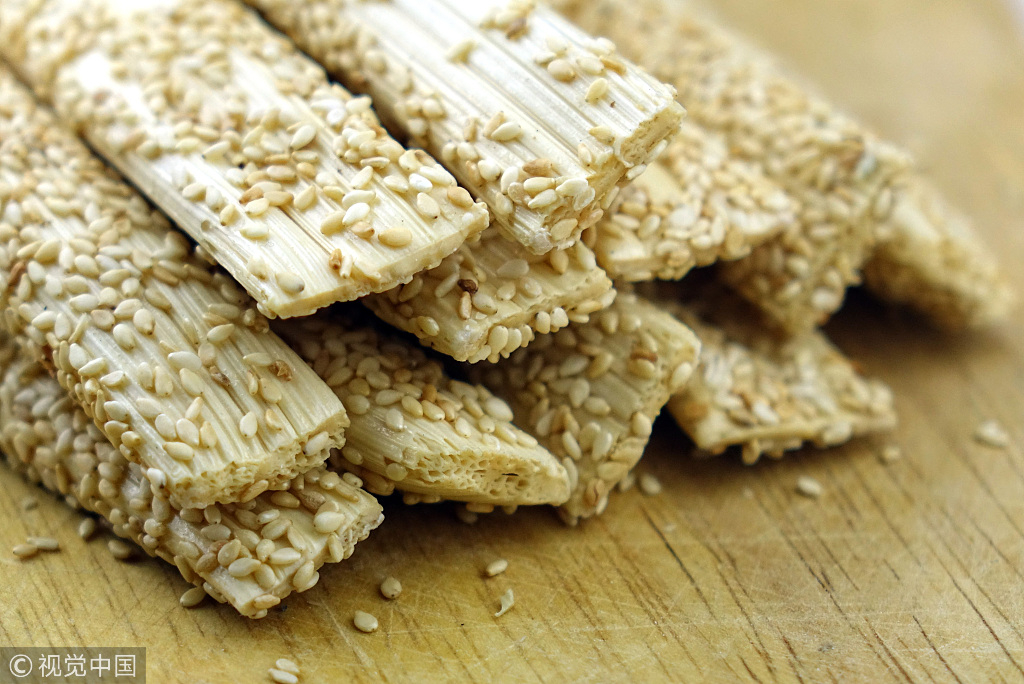
Traditional Zaotang covered by sesame in a stick shape. /VCG Photo
Traditional Zaotang covered by sesame in a stick shape. /VCG Photo
But why? Actually, in ancient times like the Tang and Song dynasties, the date of 24th is set for all. It is said that in the Qing Dynasty, the emperors offered sacrifices to gods on the 23rd, and reported his annual work to them. To make it more cost-effective, the Kitchen God was also included in this day.
Because of the geographical adjacency, the northerners were influenced by the emperors' activity, and start to celebrate Xiao Nian on the 23rd, while the southerners keep the old traditions.
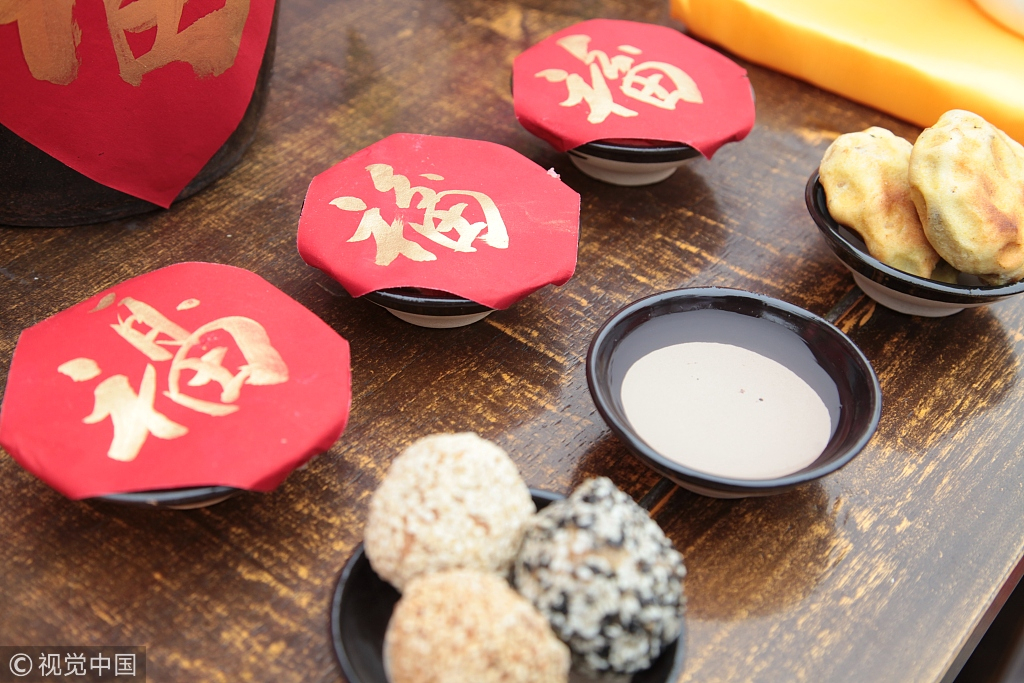
The food and articles for display at a cultural event showing the customs for Xiao Nian in Xi'an, Shaanxi Province, January 28, 2019. The character written on the red paper, "Fu", means "fortune" or "good luck," and is the most-seen ideograph during the Spring Festival in China. /VCG Photo
The food and articles for display at a cultural event showing the customs for Xiao Nian in Xi'an, Shaanxi Province, January 28, 2019. The character written on the red paper, "Fu", means "fortune" or "good luck," and is the most-seen ideograph during the Spring Festival in China. /VCG Photo
Clean homes for the New Year
On this day when all gods go back to heaven to report their work, it's a great time to clean homes without disturbing or offending the gods. So on this day, people usually do a thorough cleaning to their homes.
A neat and tidy living condition not only represents embracing the New Year with a new look but also helps prevent diseases.
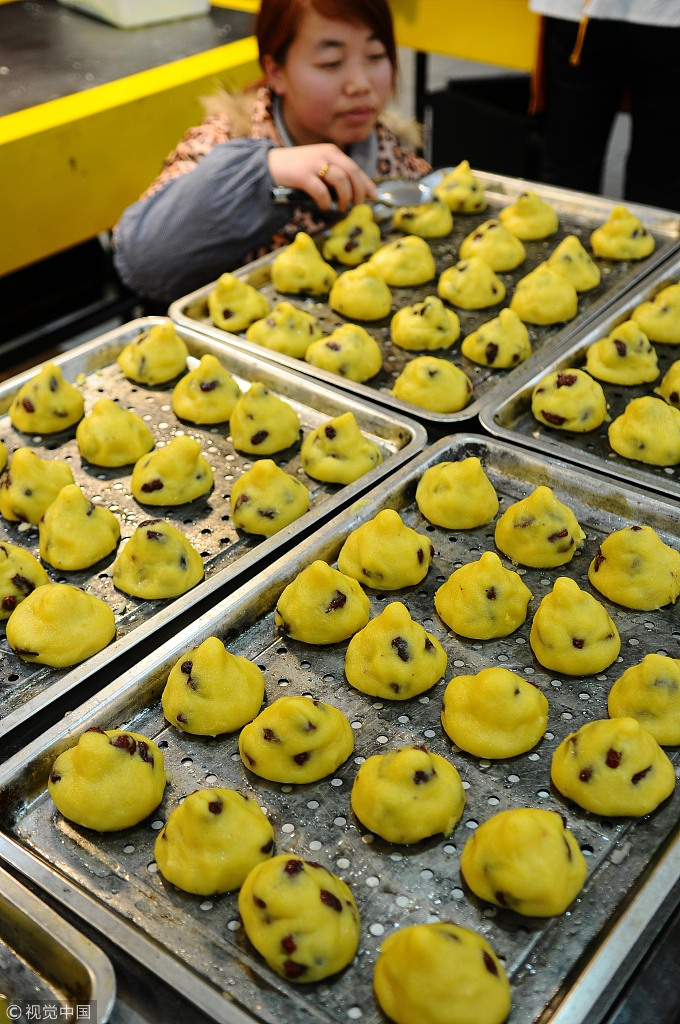
A customer buys sticky cake made with glutinous millet and red jujubes specially-made for Xiao Nian in Shandong Province. /VCG Photo
A customer buys sticky cake made with glutinous millet and red jujubes specially-made for Xiao Nian in Shandong Province. /VCG Photo
There's more to eat
The food for this day varies geographically in China. Except for Zaotang, people in north China also eat dumplings. Residents from places like Shanxi have Matang, covering Zaotang with a layer of sesame seeds. In places like Shandong Province, people make sticky cakes with glutinous millet and red jujubes.
Today, Xiao Nian is a nice chance for families to enjoy dinner together. Young people may have a passion for selecting a Xiao Nian gala on TV among a diversity of shows presented on different channels.
(Top Photo (L): Designed by Yin Yating. Top Photo (R): A picture features the activity of offering sacrifices and burning incense to the Kitchen God. /VCG Photo)

